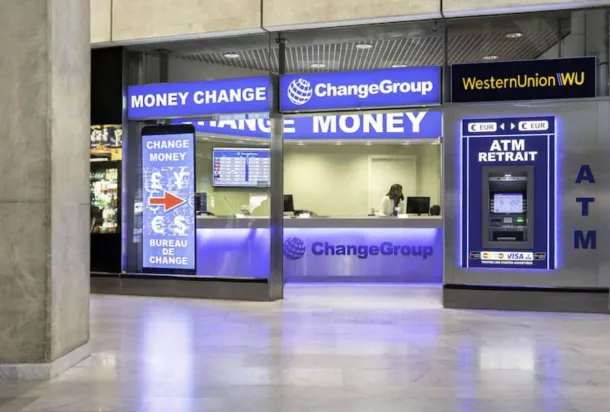20 Top Facts For Deciding On Exchange Rate Sites
The 10 Best Tips For The Cost Of Currency Conversion In Terms Of Rates And Exchange RateThe cost of conversion to currency is a major issue in today's globalized economy, regardless of whether you travel internationally to conduct business or manage investments in foreign currency. These fees vary depending on your service provider and the method of exchange, and the currency you're using. Learning how to navigate these fees will aid you in saving money and make more informed decisions. Here are the top ten specific tips for converting currency charges that can benefit travelers as well as investors, companies, and business alike.
1. Learn about the different types of currency Conversion Fees
Currency conversion costs can take on many different forms. They include transaction charges and exchange rate markups and service charges. Transaction fees are fixed charges for each transaction, whereas charges for service may be proportional to the amount converted. If the service provider provides an exchange rate that is lower than the market and they mark it up. Understanding the various types of fees can aid you in selecting the most appropriate option for your budget.
2. Compare different rates
Comparing rates is vital prior to exchanging currencies. Currency exchange kiosks, banks and online platforms typically have different fees and exchange rates. Utilize currency converters to compare rates in real-time and estimate the total price, including charges, for each option. This comparison tool can be used to find the lowest rate and save lots of money, especially when you're exchanging large amounts.
3. Find exchange rates that are free
- Some banks and financial institutions have accounts that offer free currency exchange, or lower fees for certain transactions. Account holders often receive free currency conversion like those offered by online banks or fintech firms. Consider opening an account with one of these institutions, when you frequently deal with foreign currencies.
4. Beware of fees related to Dynamic Currency Conversion.
If you make use of your credit or debit card abroad, you may be able to pay with the currency of your home country through an option known as Dynamic Currency Conversion. This may be convenient however you'll usually be charged more for conversion and will pay a less favorable rate of exchange. To avoid extra charges make sure you pay in the local currency. This will ensure you receive the most favorable exchange rate.
5. No foreign transaction fee credit cards
- When traveling, using credit cards that do not charge foreign transaction fees can save you money. This is a benefit offered by numerous travel-related cards, which permit you to purchase products abroad without having to pay additional fees. Choose a credit card that is suited to your needs and has favorable exchange rates. This will help you reduce your expenses when traveling.
6. Think about using ATMs for Currency Withdrawal
If you are using ATMs, they could offer better rates than currency exchange kiosks. Be aware of the possible charges from both your bank and ATM operators. Select ATMs that are affiliated with your bank to minimize costs. Always withdraw money in local currency.
7. Plan Currency Conversions in Advance
Avoid currency exchanges in airports or tourist areas where fees are more expensive. Plan ahead and take advantage of lower rates and better exchange rates. If you're looking to save money on your urgent travel expenses, you might consider changing small amounts of money prior to departure. However, it is recommended to consider changing larger amounts to benefit from better rates upon arrival.
8. Pay attention to the exchange rate trends
Pay attention to changes in exchange rates to decide when you should change your currency. Follow these trends to ensure you are able to make the most of your exchanges. Utilize historical and financial data to assist you in making educated decisions. This will allow you to profit from favorable economic conditions.
9. Consider hidden fees in transactions
Be aware that certain providers may have hidden fees which aren't obvious. These can include service fees and maintenance charges for accounts with foreign currencies, as well as unfavorable exchange rates. Always review the fine print and ask questions to understand the full range of charges associated with converting currencies. This diligence will help prevent any charges that are unexpected, and will allow you to make better financial choices.
10. Consult with financial experts for large purchases
Speak with a financial professional when you have a large amount of transactions to complete or are involved in complex transactions involving currency exchanges. Experts in currency can provide advice about how to reduce the cost of conversion and improve your transactions. This is especially important for businesses that are involved in international trade, or investors who want to manage their currency exposure effectively.
Follow these tips to help you navigate the complexities of currency exchange, regardless of whether you're travelling abroad, doing business overseas, or managing foreign currency investments. Understanding the costs of conversion can help you make more informed financial choices that will ensure that your goals are in line with your personal and business objectives, saving you money. Read the best AUD to USD advice for more tips including dollar to rupee, us dollar in indian rupees, dollars to pounds, japanese yen to usd, cad to usd, cop to usd, pound to usd, us to peso, vnd to usd, dollar to won and more.

What Are The Most Effective Ways To Pay In Terms Of Exchange Rates?
If you're conducting business, travelling abroad, or managing your investments, your choice of payment method is critical to effectively manage financial transactions in the modern world. The choice of payment method can have an impact on the cost, convenience and security. Different payment methods have different charges, exchange rates and acceptance levels, that can impact the overall experience and the financial results. Understanding how to use various payment options will enable you to make more informed choices. Here are the top 10 detailed tips for choosing and utilizing payment methods effectively for your financial goals.
1. Understanding the different payment methods available
Be aware of the various payment options including cash debit/credit cards, mobile wallets as well as digital wallets. Each has its own advantages and disadvantages when it comes to convenience, costs and acceptance. Cash is accepted everywhere however it's not always safe or convenient for large transactions. Knowing the advantages of the various payment methods will allow you to choose the one that best suits your needs.
2. Take into consideration the cost of currency conversion fees
- When using debit or credit cards for international transactions, you should be aware of currency conversion fees that may apply. Credit card and bank providers may charge various charges. Certain cards have fees for foreign transactions, however, others do not. If you are planning to travel to another country or make purchases abroad, you should contact your bank or credit card company prior to your trip to find out their policies on fees for currency conversion. Select cards that will reduce these charges.
3. Use credit cards with no fees for foreign transactions
If you intend to travel abroad or to make purchases in currencies other than your own, you should opt for credit cards that don't charge foreign transaction fees. A lot of travel-oriented credit cards provide this feature which allows you to use your card overseas without incurring additional fees. This can result in significant savings for frequent travelers as well as those who make large purchases overseas.
4. Mobile Options
Payment options via mobile devices, like Apple Pay, Google Pay and various other digital wallets, provide a convenient way to make transactions without having cash or cards. They offer increased security, with tokenization as well as biometric verification. This makes the best option for in-person as well as online transactions. To streamline your spending you can make use of mobile payments to make fewer purchases.
5. ATM fees: Be aware of them when you withdraw cash
If you must withdraw cash during your travels, be aware of potential ATM fees that may vary greatly. Certain banks charge charges for international withdrawals while some may work with local banks and offer free withdrawals. You can save money by looking into ATM networks that charge lower fees. Also, transferring larger amounts all at once will help minimize fees and transactions.
6. Plan for Backup Payment Methods
A backup payment method is vital to prevent disruptions in the event the primary payment method fails or becomes lost. You can make purchases if you carry a second credit or debit card. This redundancy is especially important when traveling as some locations may not accept all payment methods. Be prepared to prevent any unanticipated situations.
7. Check Exchange rates for better decisions
When purchasing foreign currencies Be aware of exchange rates in order to make educated decisions on when to exchange your money or use your preferred payment method. Tools and apps that monitor the exchange rate in real-time will allow you to determine the most favorable conditions for currency converters. You can use this information to determine the method of payment you pick, especially in the event that you can reduce conversion costs.
8. Be aware of security features
When selecting payment methods, security should be a top priority. Check out the security options offered by your bank, credit card company or payment platform. You should look for payment services that offer alerts on transactions and fraud protection. Secure payment methods protect you from fraudulent and unauthorized transactions. This is especially important when shopping online or in foreign countries.
Review Payment Policies in Business
Understanding the policies regarding payment for your company is vital to managing cash flow and customer transactions. You can evaluate the acceptance rates, charges and features of various payment processors. Pick a payment system that matches your business's goals. For example, you may want to concentrate on low transaction costs and speedy processing or ease of use for your customers. The best payment method can enhance customer satisfaction while streamlining your business.
10. It is important to be aware of the various options for investment payments.
- For investors, understanding the payment options for buying or selling assets is essential. There are a variety of payment methods for funding or operating accounts on various brokerage platforms. Be familiar with all the associated charges and time frames. Be aware of the effect of margin accounts and leverage investment on your financial strategy.
These specific tips will allow you better navigate the maze of business, travel and investment. Understanding the different payment options, their fees and security measures will help you to make a more informed decision about your finances. The right payment methods can enhance your overall experience while saving you some cash, and bring peace of mind when dealing with your finances. Take a look at the most popular CZK to EUR for more info including dollar to euro, dollars to pounds, gpb to usd, exchange rate, aud to usd, usd to eur, usd to pound sterling, usd to indian rupees, canadian dollar to usd, usd to pound sterling and more.
